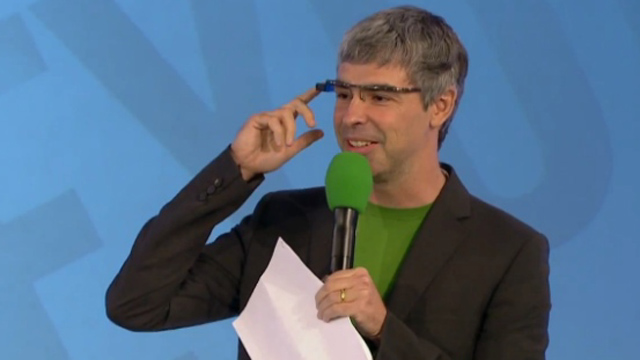During today’s Google Q1 2013 earnings call, CEO Larry Page gave us a rundown on exactly what the company has been up to in this quarter, as well as some insight into how he’s currently running the company. Page took over from Eric Schmidt in early 2011, and since then has started bringing all of the company’s services together, under the umbrella of helping people get access to information quickly.
Page discussed Google’s current “big bets,” which are Chrome, YouTube and Android as the mature products that are important to continue innovating on. However, Page made it clear that as CEO of the company, it’s his job to focus on the future.
He said: “Companies tend to get comfortable doing what they’ve always done, with only a few minor tweaks. It’s only natural to work on the things you know. Minor changes make things obsolete.” It was very interesting to hear Page gloss over its search, advertising and business offerings. He didn’t even mention Google+. He wanted to get right to the point, which was to make it clear that Google is still a forward-thinking company, and the company is executing in that way.
Things that aren’t incremental changes, and future big bets are Google Fiber, which Page says came about after co-founder Sergey Brin wanted to show how high-speed Internet access could help change people’s lives.
Additionally, Page mentioned the fact that Google is now handing out the first pairs of Google Glass to developers, and said: “I get chills when I use technology of the future, and that happens with Glass.” Page reminded us that it’s “early days” for the product, saying that he finds the directions, messaging, directions and photo-taking as great core functionality. The developer aspect is something that he finds particularly exciting, given Google’s success with third-party apps on Android.
Going back to what Google has been pushing, which is speed, means that it’s completely overhauling all of its legacy services to catch up with these present and future big bets. If search doesn’t bring you queries quickly, what good is really super-fast fiber Internet access? The other side of the coin is, why add more functionality and better quality to YouTube videos if nobody has really fast enough Internet access to see them?
It seems like Google has set itself up to work on things that push each unit to better its product, chasing both the chicken and the egg. Take Glass, for example. Accessing search results isn’t the best, or fastest, use-case on the device, but seeing Google Now cards with information that is relevant to what you search for on the desktop is.
During Page’s tenure as CEO, it has been clear that the teams within Google are sharing a unified vision. Google wants to be seen as an innovative company, not just an always-there utility. Being both is difficult, but it has to continue to compete with companies like Apple, which is the first company someone would name if you said the word “innovation.”
Photo credit: Gizmodo

